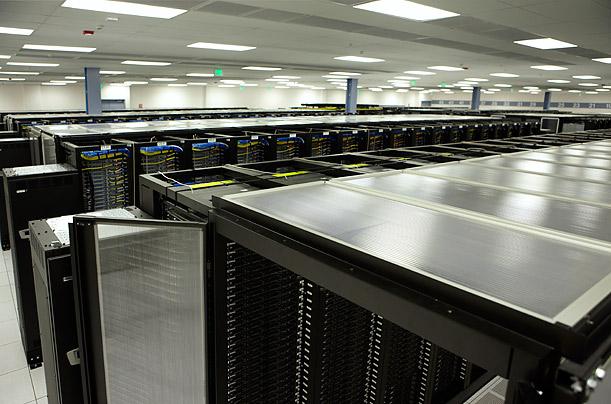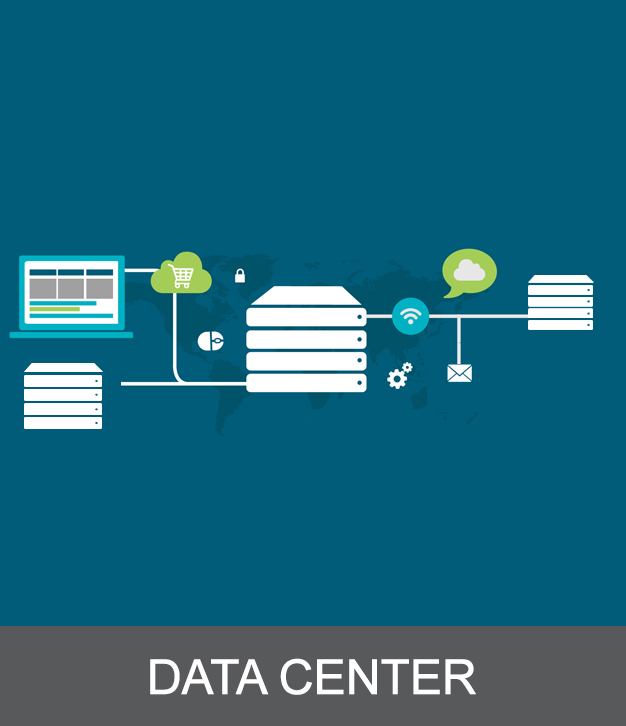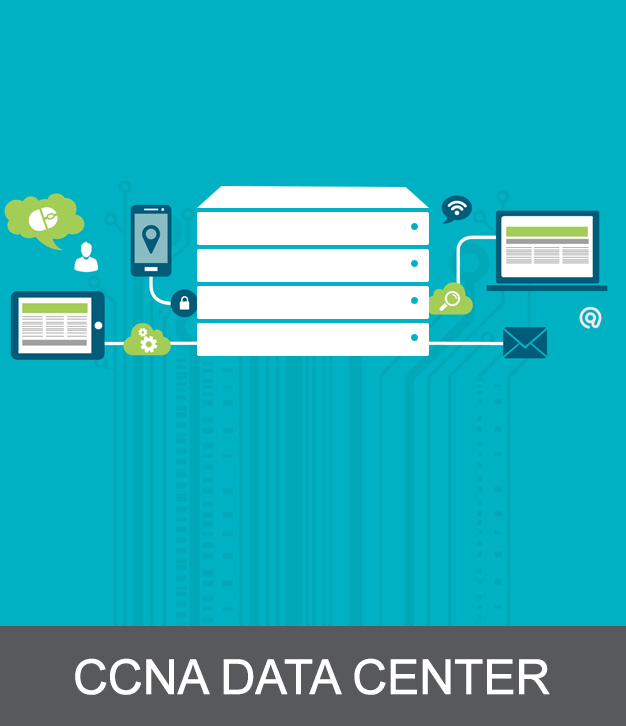|
درباره دوره آموزشی دیتاسنتر (CCIE Data Center) نوران بیشتر بدانید
دوره آموزشی CCIE Data Center شامل کسب مهارت های تخصصی و کافی جهت برنامه ریزی ، طراحی ، مشاوره ، اجرا ، مدیریت و پشتیبانی زیرساخت Data Center های مدرن می باشد.
کسانی که موفق به گذراندن این دوره می شوند مهارت های خود در بالاترین سطح ارتقاء داده و آماده رهبری Data Center های مدرن با فن آوری های جدید خواهند بود.
اهداف دوره:
شما پس از گذراندان دوره MTCIPv6E قادر خواهید بود:
- آشنایی ابتدایی با IPv6
- معرفی پروتکل IPv6
- بسته IPv6
- امنیت IPv6
- آشنایی با مکانیزم انتقال
مخاطبین دوره:
- علاقمندان به مباحث آموزش شبکه و میکروتیک
- مدیران و کارشناسان IT
- متخصصان شبکه

|
|
|
|
- Professional Routing and Switching
|
|
|
|
|
|
|
|
|
|
|
|
|
1-VDCs
Virtual Device Contexts (VDCs)
Implementing VDCs
Allocating VDC Interfaces
Limiting VDC Resources
Moving Between VDCs & VDC Management
VDC User Rights, High Availability & Verification
2-Nexus Fabric Extenders (FEX)
Fabric Extenders [ FEX]
Nexus 2000 FEX Overview
FEX Configuration, FEX and STP
Cisco Integrated Management Controller
Using the Cisco Integrated Management Controller [CIMC]
FEX Configuration
Configuring Fabric Extenders
vPC and FEX Design Variations
Host vPC & Fabric vPC
Enhanced vPC
3-Nexus Virtual Port Channels (vPC)
Introduction
Virtual Port-Channels (vPC) Overview
Implementing Virtual Port-Channels in NX-OS
How MLAG Works
vPC High Level Components
NX-OS vPC Verifications
Implementing vPC
Back-to-Back vPC
vPC Peer Switch
vPC Failure Detection & Recovery
vPC Failure Detection & Recovery Overview
Correct vPC Failure Order of Operations
vPC Initialization Order of Operations
vPC Consistency Check
vPC Orphan Ports
vPC Peer Link Failure
Peer Keepalive & Peer Link Fate Sharing
Peer Keepalive & Peer Link Path Diversity
vPC Peer Link Failure & Orphan Isolation
vPC Peer Link Failure & Northbound Routing
vPC & FHRPs
vPC Peer Gateway
4-Nexus FabricPath
FabricPath Overview
3 Tier Design Issues Review
FabricPath
Implementing Basic FabricPath
FabricPath Configuration
FabricPath Verifications
FabricPath and STP Interaction
FabricPath and STP Interaction
FabricPath and STP Traffic Engineering
vPC+
Anycast HSRP
FabricPath Multi-Topology Routing
Traffic Engineering with FabricPath IS-IS
Implementing FabricPath IS-IS MTR
FabricPath Features
FabricPath Multidestination Trees
Modifying & Verifying MDT Election
FabricPath Authentication
Implementing FabricPath Authentication
FabricPath IS-IS Overload Bit
BFD & over FabricPath
5-Overlay Transport Virtualization (OTV) on NX-OS
OTV Course Overview
Why Use OTV?
OTV vs Other DCIs
How OTV Works
OTV Terminology
OTV Control Pane
OTV Data Plane & Adjacency Server
Configuring OTV
OTV Prerequisites
OTV Order of Operations
Verifying OTV
Common OTV Verifications
OTV with Multicast Transport
OTV with Unicast Transport
OTV with Unicast Transport Adjacency Server Topology
OTV with Unicast Transport Adjacency Server Configuration
OTV High Availability
OTV HA Considerations & AED Node High Availability
Recovering from AED Node Failure
Tuning AED Node Failure Detection
Layer 3 Multicast HA for AEDs & Adjacency Server HA
OTV & First Hop Redundancy Protocols (FHRP) Localization
Locator/ID Separation Protocol (LISP)
Locator/ID Separation Protocol (LISP) Overview
What Is LISP?
Why LISP?
LISP Terminology
Implementing LISP on Cisco NX-OS
ACI to VXLAN BGP EVPN Over OTV with LISP Mobility
6-Implementing Unified Computing System (UCS)
UCS Course Overview
Implementing UCS Introduction
UCS Blade Server Components
High Level Components
Basic Initialization
UCS Manager Initialization
Initialization Workflow
UCS - OS Installation to Remote Storage
UCS - OS Installation to Remote Storage
Remote Storage Variations & Virtual Media
UCS LAN Connectivity
Blade to 10M Pinning & UCS FI Cluster Links
Logical View & VN-Link vs. VN-Tag
LAN Connectivity & LAN Connectivity - EHM
LAN Connectivity Example
UCS Disjoint Layer 2 LAN Connectivity
Disjoint Layer 2 Solutions
UCS LAN Connectivity - Ethernet Port Channels
Hardware Topology - UCS B Series
UCS LAN connectivity fabric Failover
Logical View - Fls, 10Ms, & Blades
UCS LAN Connectivity vNIC Templates
LAN Connectivity vNIC Templates
UCS Service Profile Templates
UCS Server Pools & Qualification Policies
UCS Server Pools
UCS Address Pools
UCS Policies
UCS Firmware Management
UCS Backup & Restore
7-Storage Area Networking (SAN) Switching on NX-OS
Storage Area Networking
Storage Area Networking Overview
Storage Area Networking Hardware Components
Storage Area Networking Hardware Components
Cisco Storage Platforms
Host bus Adapters (HBAs)
Fibre Channel Protocol
Fibre Channel Overview
Fibre Channel Port Types
Fibre Channel Addressing, FC World Wide Names, and FC Identifiers
Fibre Channel Domain IDs and Routing
Fibre Channel Logins, FLOGI, PLOGI, & PLRI
Zoning
Virtual SANs (VSANs)
SAN Port Channeling
UCS C Series and B Series SAN Connectivity
UCS C Series and B Series SAN Connectivity
Unified Ports on Nexus 5000 and UCS B Series Fabric InterconnectsFCoE over Enhanced vPC Overview
FCoE over EvPC Configuration
SAN Port-Channels
FCoE on UCS B Series
Unified Port-Channels
Multihop FCoE
Zoning & Device Aliases
8-Virtual Extensible LAN (VXLAN) on Nexus NX-OS
Course Overview
VXLAN Overview
VXLAN Terminology
VXLAN Encapsulation
Basic VXLAN Workflow
VXLAN Configuration
VXLAN Configuration Prerequisites
VXLAN Flood & Learn on NX-OS
Implementing VXLAN BGP EVPN on NX-OS
VXLAN BGP EVPN Prerequisites
VXLAN BGP EVPN Configuration Steps
VXLAN BGP EVPN Verification
VXLAN Configuration & Verification Review
VXLAN BGP EVPN Configuration & Verification Review
Inter-VXLAN Routing
Asymmetric vs. Symmetric IRB
How Symmetric IRB Works
vPC & VXLAN BGP EVPN
vPC & VXLAN BGP Traffic Flow Problems
vPC Anycast VTEP
Configuring NVE Peer-Link-VXLAN
VXLAN Underlay Fabric Unicast High Availability
Bidirectional Forwarding Detection (BFD)
Bidirectional Forwarding Detection (BFD) Overview
Configuring BFD on NX-OS
VXLAN Underlay Fabric Multicast High Availability
VXLAN Underlay Fabric Convergence & Tuning PIM Convergence
PIM RP Redundancy
Anycast RP
Phantom RP
VXLAN BGP EVPN External Layer 3 Connectivity
External Routing for VXLAN BGP EVPN, Border Leafs & Considerations
External Routing for VXLAN BGP EVPN Configuration
9-Application Centric Infrastructure (ACI)- Network Centric Mode
Course Overview
ACI Introduction
What is ACI?
Nexus 9000 ACI Switches
APIC Controllers
ACI Network Topology
Class ACI Topology
Managing the ACI Fabric & ACI Behind the Scenes
ACI Fabric Initialization
Initializing Fabric & Connecting to APIC via CIMC SOL
Navigating the APIC GUI
Discovering The Fabric & Viewing the Topology from the GUI
Connecting to Nodes & Verifying Underlay Routing from CLI
ACI Virtual Port Channels (vPC)
Configuring Fabric Access Policies
Creating and Verifying a vPC
ACI Tenants
Tenant Overview and Hierarchy
Tenant Components
Tenant Hierarchy
Layer 2 Access Ports on ACI
ACI Object Workflow
Inter EPG Communication in ACI
Inter End Point Group (EPG)
Layer 2 Trunk Ports on ACI (L2Out)
Extending Bridge Domain Outside ACI
Extending Bridge Domain Outside ACI (L2Out)
Inter EPG Communication with L2out in ACI
STP and L2out
STP and L2out in ACI
Connecting ACI to External Layer3 Networks (L3out)
ACI External Layer 3 Routing with OSPF
ACI External Layer 3 Routing with EIGRP
ACI External Layer 3 Routing with BGP
دوره های مرتبط:
|
|













